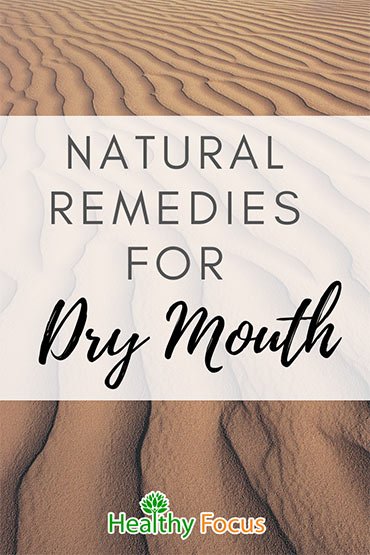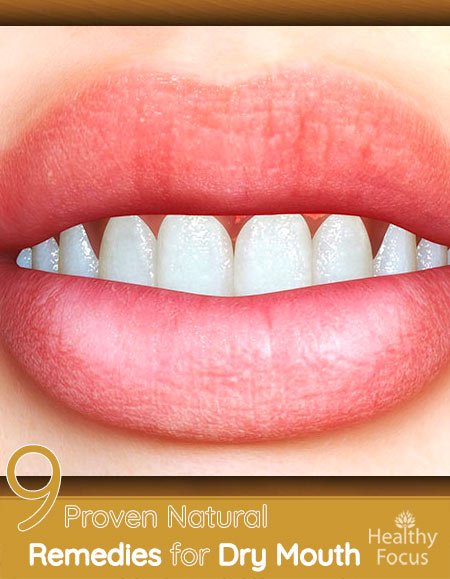Last Updated on February 11, 2019 by Marc Seward
What is Dry Mouth?
Xerostomia which is more commonly referred to as dry mouth describes any condition where the mouth becomes unusually dry. Dry mouth is usually caused when the salivary glands produce less saliva than normal often as a result of taking certain medications.
Dry mouth is a very common condition which can range in severity from simply being a nuisance to one that has an impact on your overall health and enjoyment of eating. Producing sufficient saliva is important for many reasons; it limits bacterial growth, prevents tooth decay and facilitates taste and swallowing. Saliva also contains enzymes which helps you to digest your food.
Symptoms of Dry Mouth
When your production of saliva is less than it should be, there are several telltale signs including the following:
- Dryness in the mouth and throat
- Bad breath
- Problems speaking and chewing
- Thick or stringy saliva
- Poor sense of taste
- Gum disease
- Tooth decay
Causes of Dry Mouth
There are many common causes of dry mouth including the following:
Medication
Dry mouth is a common side effect of literally hundreds of medications. Types of drugs that often cause dry mouth include anti-anxiety and anti-depression drugs as well as antihistamines, pain killers and muscle relaxants.
Other Causes of Dry mouth
Include the aging process, chemotherapy, nerve damage, tobacco and the use of amphetamines.
Natural Remedies for Dry mouth
Whatever the cause of your dry mouth, there are plenty of very effective and safe natural remedies that you can try at home. These home remedies include the following:
1. Increase Fluids
Because dehydration is a very common cause of dry mouth, it goes without saying that you should make sure that you are sufficiently hydrated. Drinking plenty of fluids is not only good for your overall health but can also help stimulate your glands to produce the saliva necessary to eliminate the symptoms of dry mouth.
- Make sure you sip on plenty of water through the day.
- Fresh fruit and vegetable juices are a healthy alternative to water.
- You can also hydrate yourself by eating fruit and vegetables with a high water content like watermelon, pineapple, oranges and cucumber.
- Liquid food like soup and stew will also help you to hydrate.
You should avoid drinking alcoholic and caffeinated drinks because they are likely to make you more dehydrated.
2. Slippery Elm
Slippery elm is one of the best home remedies for dry mouth. It contains a substance called mucilage which helps transform it into a gel when it is combined with water. This slick gel helps to coat the mouth and throat which helps soothe any discomfort you are experiencing.
There are several popular ways to use slippery elm as a remedy for dry mouth:
- Add a tablespoon or two of your slippery elm to one cup full of hot water then cover the cup and steep for at least ten minutes. Strain the mixture, add honey to taste and drink up several times a day.
- Alternatively make a paste by mixing slippery elm powder with sufficient water. When the consistency is smooth enough, apply it to the inside of your mouth, leave it in place for two or three minutes then rinse with water.
3. Fennel Seeds
If you are suffering from dry mouth then surprisingly, chewing on fennel seeds can help remedy it. Fennel seeds contain flavonoids that are said to stimulate the production of saliva and they also have an aromatic scent and flavor which can combat the bad breath which is often a symptom of dry mouth.
As well as simply munching on fennel seeds during the day, you can mix them with an equal amount of fenugreek seeds and roast them. After roasting the seeds, grind them up and add a pinch of salt. Eat half a teaspoon of the seed mixture after your meals.
4. Cayenne Pepper
Cayenne pepper is another way of getting your salivary juices flowing properly. Moreover it can give your taste buds a boost which will help restore your appetite and sense of taste that is often diminished when you have a case of dry mouth.
To treat dry mouth you can simply sprinkle your salads and soups with cayenne powder. Alternatively, put a little powder onto a damp finger and apply it around your tongue. It may sting a little but is a great way to stimulate the salivary glands into action.
5. Oil Pulling for Dry Mouth
Oil pulling is a common Ayurvedic remedy for keeping the mouth moist and alleviating the symptoms of fry mouth. It can also help keep your mouth clean and fresh and eliminate foul smelling breath that accompanies the condition.
You can use various good quality vegetable oils including coconut, olive or sesame oil to perform this treatment.
To treat your dry mouth, you should repeat this process every morning before eating.
- First put a tablespoon of your chosen oil into your mouth and then swish it around for at least 10 minutes.
- Spit pout the oil and rinse out your mouth before brushing your teeth.
6. Aloe Vera
Despite being best known for its skin applications, here is another use for good old aloe vera.
There are several ways to use aloe vera to treat dry mouth.
- Use aloe vera juice to rinse out your mouth each day.
- Get a fresh aloe leaf, extract the gel and apply it around your tongue and mouth with a cotton swab.
- Drink half a cup every day to stay hydrated and treat your symptoms.
7. Lemon
Fresh lemons and their juice help stimulate the glands to produce more saliva while their acidic nature helps keep the mouth clean and odor free.
- Extract the juice of a fresh lemon and mix it with water or your juice recipe to stay hydrated and cleanse your mouth.
- Alternatively, slice a lemon, add a touch of salt and rub it around your tongue. This will stimulate saliva production and heighten your sense of taste.
8. Ginger
Ginger is another healthy treat that can stimulate your salivary glands and also help your mouth to feel fresher.
- Drink several cups of ginger tea every day which helps keep you properly hydrated and stimulate saliva production.
- Chewing on a piece of ginger throughout the day can also help treat the symptoms of dry mouth.
9. Cardamom
Chewing on a cardamom pod or drinking cardamom tea can also help treat dry mouth by stimulating the salivary glands and eliminating foul smelling breath
Additional Tips for Dry Mouth
As well as the natural remedies that I have listed above, there are several other tips that you should follow to prevent the condition.
- Tobacco can inhibit saliva production so if you are a smoker, try greatly reducing your habit or quitting altogether. It goes without saying that quitting smoking is crucial to your health for many other reasons.
- For nighttime dry mouth, you can use a humidifier or a vaporizer to ensure your room stays moist throughout the night,
- Chewing on sugar free gum can promote the production of saliva and freshen your breath.
- When you brush your teeth, make sure that you also clean your tongue with toothpaste or mouthwash.
- Gargling with warm salt can help treat dry throat and mouth.

Leave a Reply
You must be logged in to post a comment.